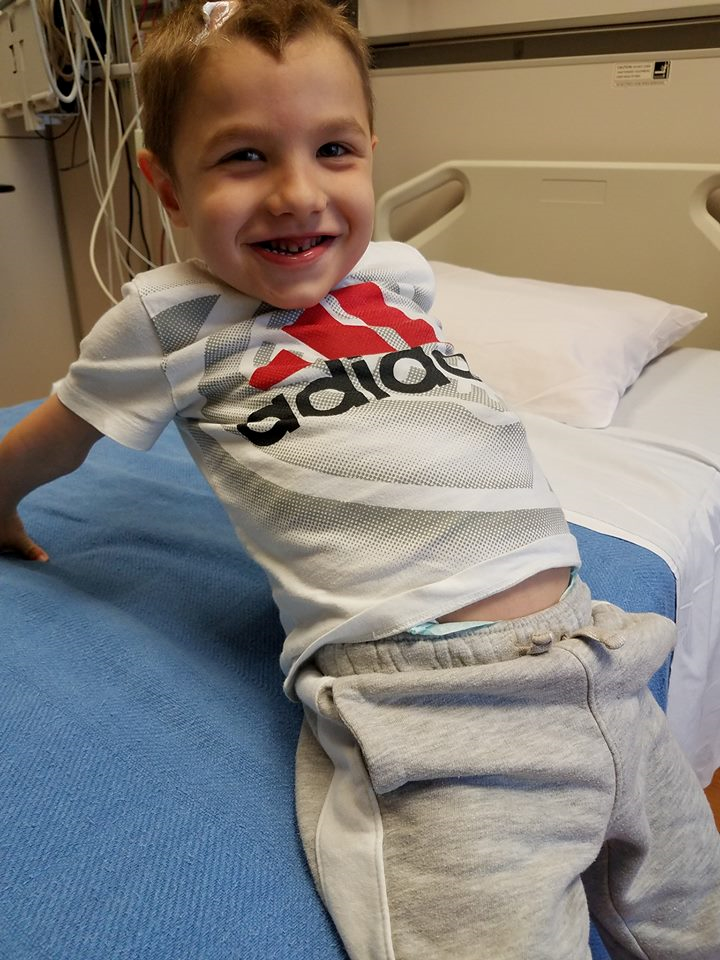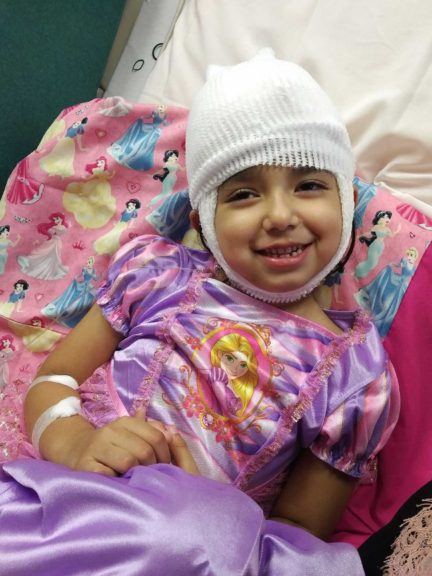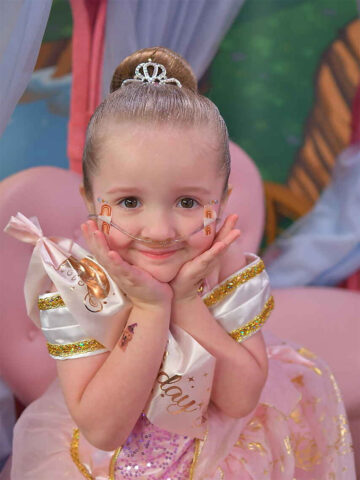Just two weeks after losing their 6-year-old son to a rare and fatal genetic brain condition, Bekah and Danny Bowman began the first of many cross-country trips with their 3-year-old son in hopes that a new treatment would spare the younger boy from the same fate as his brother.
Ely was diagnosed with CLN2 disease, also known as late infantile Batten disease, shortly after his older brother, Titus, was found to have the same condition following nearly two years of symptoms. Batten disease typically begins with language delays and seizures before age 3, and rapidly progresses to dementia, blindness, loss of the ability to walk and talk, and death in childhood.
Beginning to show a speech delay, Ely would travel with his parents from Orange County to Columbus, Ohio, every 10 days to participate in a clinical trial wherein he would receive an infusion of a medicine that researchers believed would slow the disease’s progression.
But now, the Bowmans need only to drive a few miles to CHOC Hospital for this critical treatment. CHOC has become one of the first hospitals in the United States to offer Brineura, which the U.S. Food and Drug Administration approved in April as the first and only treatment for Batten disease.

Over a three-year period, patients like Ely who were treated during the clinical trials showed no progression of the disease, which was radically different from the disorder’s natural course. The medication improves quality of life and buys patients critical time as researchers continue to search for a cure.
CHOC has been fast tracked to provide this novel new therapy commercially, which requires making a reservoir in the brain to give an infusion every two weeks.
Brineura’s availability at CHOC is also a game changer for Maya James.
Diagnosed with an atypical form of Batten disease about four years ago, the 14-year-old had also been traveling regularly to Ohio to participate in the clinical trial.
While the medicine has been shown to slow the progression of Batten’s devastating consequences, Suzette, Maya’s mother, says the treatments have helped her daughter improve her balance and walking. Maya continues to ride a bicycle and rock climb.
The treatment has given the James family hope.
“We’re so thankful to have this opportunity,” Suzette says. “Before, we had nothing. We only had, ‘Your child is going to die and we can’t tell you when. And she’s going to lose every function she has and we can’t tell you when.’ It’s truly groundbreaking what CHOC is bringing for patients with neurological conditions. This is an opportunity for people with other similar diseases to have hope.”
Maggie Morales was preparing to bring her daughter Mia to Ohio for treatment when she got a call from CHOC about Brineura’s availability.
Now, Mia, 5, has completed more than six infusions of the medicine, and her family has found a sliver of light following a devastating diagnosis last year.

“It’s amazing that there’s treatment because when we first got the diagnosis, there was nothing to do but take your child home and wait for it to happen,” Maggie says. “Hopefully along the way, a cure comes along. “
Bringing Brineura to CHOC is the product of three years of work by Dr. Raymond Wang, a metabolic specialist who treats Ely, Maya and Mia.
Dr. Wang works closely with neurosurgeon Dr. Joffre Olaya to administer the medicine. Each patient has an Ommaya reservoir implanted under their scalp, which allows the medicine to be infused directly into their brains.
In a sterile procedure every 14 days, Dr. Olaya and a team of highly trained nurses insert a needle into the reservoir to administer the medication. The infusion lasts four hours, and after four hours of observation, the patients can go home.
“This is huge,” Dr. Wang says. “You’re taking a progressive and fatal disease and stopping it. Having seen how heartbreaking it is for families to see the child they know get slowly robbed from them, the fact that we can offer these families hope, is tremendous. Something like this is the very reason I went into medicine and specialized in metabolic disorders: to provide hope to families affected by rare disorders such as late infantile Batten disease.”
As he receives his infusion, Ely wears medical scrubs with “Dr. Ely” embroidered across the chest and watches videos on an iPad. Flashing across the tablet’s screen are home movies of Ely as a toddler playing with his late older brother.
The Bowman family will never get back those days, but this life-saving treatment at CHOC is an opportunity to halt a disease that has ravaged their family.
“For Ely to be home and have consistency and we can still have some fun is wonderful,” Bekah says. “We can see him thriving.”





